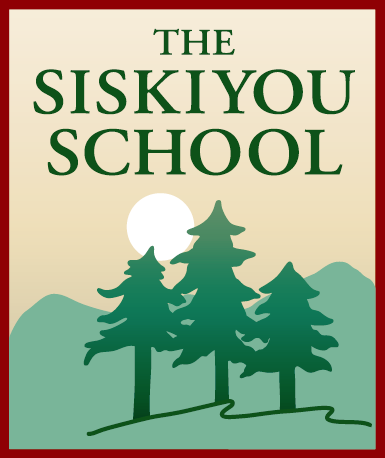Diversity, Equity and Inclusion
At its core, the Siskiyou School strives to be an inclusive environment for all students, staff, and community members. We recognize that historical and current systems of racism, sexism, and other forms of discrimination exist in our nation, in Oregon, and in the Rogue Valley. We seek to be an institution that dismantles these frameworks. As a Waldorf school we honor the whole human being and the unique and important qualities that each person brings to the world. The work of Rudolf Steiner inspires us, and we actively seek to make that work relevant to our current time. This includes addressing our understanding of Steiner’s words and renouncing that which is discriminatory or harmful. For many years we have worked to foster a culture of belonging where all of our students see themselves reflected in the curriculum as well as gain an understanding of the experience of others. The Siskiyou School does not discriminate based on race, ethnicity, national origin, gender identity or expression, family composition, or sexual orientation.
As a school we recognize our responsibility in creating an environment that is safe for all of our community members, where each person is treated with dignity and respect. For the past several years, the Siskiyou School has actively worked toward creating a culture that is diverse, equitable, and inclusive. We are continuing to examine ways in which we can grow in these areas. We have accomplished a lot, and yet we acknowledge that there is always more to be done. We are committed to upholding the following practices:
● Examining our curriculum and policies with an equity and diversity lens and making changes when appropriate. This includes acknowledging that Waldorf Education is Eurocentric in its foundation, and we take interest in expanding beyond this limitation in order to create an equitable education for all races and ethnicities.
● Committee work in the areas of Diversity, Equity, and Inclusion (DEI) and anti-discrimination.
● Consistent training and study by board, faculty, and administration in areas related to DEI. This includes reflecting on our own lived experiences and social locations and acknowledging areas where we have benefited from privilege and areas where we have experienced discrimination.
● Providing a campus that is safe for all gender expressions and identities.
● Providing resources and tools for students with various learning styles including learning disabilities and differences.
Resources:
Differences and Disabilities Understood
How to Talk to Kids About Disabilities
Talking to Kids about Race
Center for Racial Justice in Education
LGBTQ+Resources
GLAAD Media Reference Guide- Includes a glossary of terms
Supporting Transgender Children in Schools
Talking to Kids About Gender and Sexual Orientation
General Diversity Resources
Learning for Justice - Lesson plans and curriculum guides for teachers.
Gender "Basics" Letter and Terminology
Fostering Cultural, Social, and Historical Literacy in our Students
